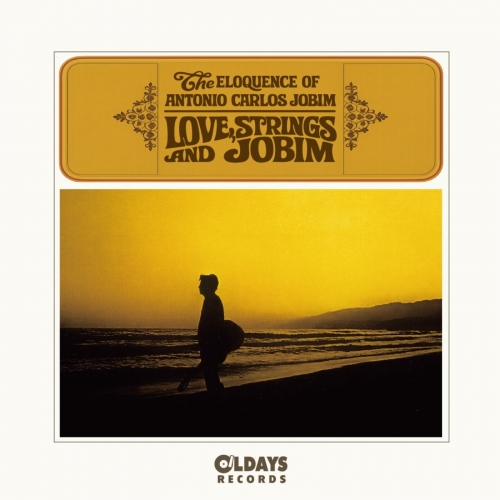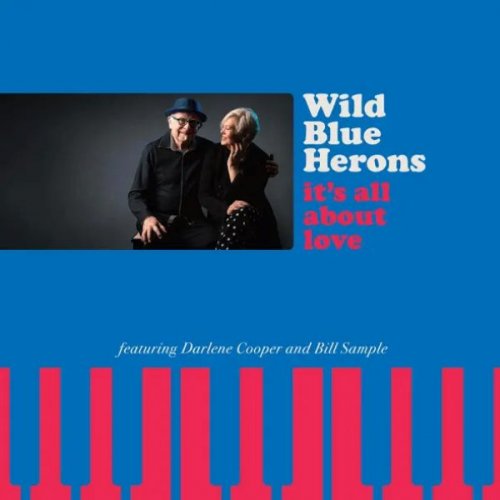Over The Rhine - Snow Angels (2007)

Artist: Over The Rhine
Title: Snow Angels
Year Of Release: 2007
Label: Great Speckled Dog
Genre: Folk Rock
Quality: FLAC (tracks) / MP3 320 Kbps
Total Time: 43:36
Total Size: 323 / 133 Mb
WebSite: Album Preview
Tracklist: Title: Snow Angels
Year Of Release: 2007
Label: Great Speckled Dog
Genre: Folk Rock
Quality: FLAC (tracks) / MP3 320 Kbps
Total Time: 43:36
Total Size: 323 / 133 Mb
WebSite: Album Preview
01. All I Ever Get For Christmas Is Blue (04:26)
02. Darlin' (Christmas Is Coming) (03:36)
03. White Horse (04:16)
04. Little Town (03:25)
05. New Redemption Song (02:27)
06. Goodbye Charles (02:23)
07. Snowed In With You (05:11)
08. North Pole Man (03:10)
09. Here It Is (03:28)
10. One Olive Jingle (04:01)
11. Snow Angel (04:29)
12. We're Gonna Pull Through (02:48)
Over the Rhine has released holiday records before -- make that Christmas records -- with Darkest Night of the Year, a recording of a live performance done in a public theater in Cincinnati in 1997. But Snow Angels is different. It amounts to the second full-length recording OTR has released in 2007. First came the flawed but nonetheless compelling Trumpet Child. Snow Angels, set in the coming winter, deals with seasonal themes of death and rebirth, with the time of the lowest of depressions and the greatest of joys, and results in a profound meditation on the season, on winter, and on what it allows to happen both inside the individual and for the land. It was recorded at a home studio set up in the barn of the pre-Civil War farmhouse that OTR's two permanent members, Karin Bergquist and Linford Detweiler, live in. Detweiler's piano has become the central aspect of OTR's instrumental sound, and it is especially so here, which is good and proper as it nostalgically recalls notions of family and friends gathering around an upright and singing together. There are few singalongs, though. Most of the songs here are jazzy, introspective tunes framed in Bergquist's ever more astonishing voice. It's because she's an unusually gifted vocalist. Her range is limited and reedy at the top, but that's because she has become a true stylist in her own right. She has studied the greats and it shows. There isn't anything extra in her delivery; her clipped lines on the gorgeous "All I Ever Get for Christmas Is Blue" recall Billie Holiday and Betty Carter in their phrasing, but she doesn't have those voices, making it all the more remarkable. Thank God she doesn't give in to the contemporary temptation to sing like Norah Jones or Tierney Sutton -- we have enough of those clones already. What's beautiful in this tune is that pervasive feeling of "blue" as this retro-jazz number moves through its paces with simply a piano trio backing her. When she sings gospel on "New Redemption Song," and Detweiler's piano resonates in its middle and lower registers, the band kicks in behind them as if to underscore the places she's been by the time she opens her mouth. Brad Jones plays bass and electric guitar, and Detweiler dubs in a B-3 as well.
Detweiler's "Goodbye Charlie" is a wonderful elegy for Charles M. Shultz, creator of Charlie Brown and the entire Peanuts crew. How do we know? Because the song's imitation of Vince Guaraldi is so utterly complete, even in the trills followed by bass notes; Detweiler has them down cold -- at least mechanically. It's derivative but fun, and he's becoming a better pianist all the time. Perhaps one day we'll here Red Garland and Ray Bryant in his playing as well as Guaraldi and Erroll Garner. Another fine jazz moment is in "Snowed in with You," again starred by Bergquist's poetic and gently swinging vocal performance (she really reaches for her higher register here and pulls it off because she lets the volume rise); she's supported by a brilliant upright bassline from Byron House and a taut little violin solo by the great multi-instrumentalist Fats Kaplin. "North Pole Man" is a blues that is a little too sparse to hold with the rest of what's here, but it's a small complaint. Those longing for OTR's particular brand of country-rock will not be disappointed, as "Here It Is" is a full-blown rocker with electric guitars, acoustic guitars, a B-3, bells, and some nice kit work by Mickey Grimm; and Bergquist's lyrics, as over the top as they are, are among her best (truth be told, Bruce Springsteen will be jealous if he ever hears this song, though Patti Scialfa will know exactly where a song like this comes from). House's undulating bassline is infectious here.
The set closes with the sparse "We're Gonna Pull Through." It's a strange and haunting way to end a recording that is, for the most part, jaunty with an even tempo. While the message in Bergquist's lyric is redemptive, it comes by way of difficulty, love-worn and tested, yet absolutely affirmative in how necessary that message is that gets through. Detweiler's acoustic guitar and piano skeletally frame the vocal and David Henry's cello plays serpentine-like through and around it. The bottom line is simple: this is perhaps the only "Christmas" record to have -- other than Guaraldi's, of course -- even if you are sick to death of Christmas records. Beyond that, however, and despite Detweiler's usual pretentious liner notes, which feel patronizing to the casual listener (though surely not to the rabid roots fan base OTR has developed over the decades -- put them on your website, put them in a blog, but leave them out of the booklet and save some trees), this happens to be among the most enjoyable, and sophisticated and quirky records in OTR's catalog. It doesn't have the tension and drama some of the others do, but it feels genuine, heartfelt, and full of a kind of gratitude that can only be called joy. Highly recommended.
Detweiler's "Goodbye Charlie" is a wonderful elegy for Charles M. Shultz, creator of Charlie Brown and the entire Peanuts crew. How do we know? Because the song's imitation of Vince Guaraldi is so utterly complete, even in the trills followed by bass notes; Detweiler has them down cold -- at least mechanically. It's derivative but fun, and he's becoming a better pianist all the time. Perhaps one day we'll here Red Garland and Ray Bryant in his playing as well as Guaraldi and Erroll Garner. Another fine jazz moment is in "Snowed in with You," again starred by Bergquist's poetic and gently swinging vocal performance (she really reaches for her higher register here and pulls it off because she lets the volume rise); she's supported by a brilliant upright bassline from Byron House and a taut little violin solo by the great multi-instrumentalist Fats Kaplin. "North Pole Man" is a blues that is a little too sparse to hold with the rest of what's here, but it's a small complaint. Those longing for OTR's particular brand of country-rock will not be disappointed, as "Here It Is" is a full-blown rocker with electric guitars, acoustic guitars, a B-3, bells, and some nice kit work by Mickey Grimm; and Bergquist's lyrics, as over the top as they are, are among her best (truth be told, Bruce Springsteen will be jealous if he ever hears this song, though Patti Scialfa will know exactly where a song like this comes from). House's undulating bassline is infectious here.
The set closes with the sparse "We're Gonna Pull Through." It's a strange and haunting way to end a recording that is, for the most part, jaunty with an even tempo. While the message in Bergquist's lyric is redemptive, it comes by way of difficulty, love-worn and tested, yet absolutely affirmative in how necessary that message is that gets through. Detweiler's acoustic guitar and piano skeletally frame the vocal and David Henry's cello plays serpentine-like through and around it. The bottom line is simple: this is perhaps the only "Christmas" record to have -- other than Guaraldi's, of course -- even if you are sick to death of Christmas records. Beyond that, however, and despite Detweiler's usual pretentious liner notes, which feel patronizing to the casual listener (though surely not to the rabid roots fan base OTR has developed over the decades -- put them on your website, put them in a blog, but leave them out of the booklet and save some trees), this happens to be among the most enjoyable, and sophisticated and quirky records in OTR's catalog. It doesn't have the tension and drama some of the others do, but it feels genuine, heartfelt, and full of a kind of gratitude that can only be called joy. Highly recommended.

![Asher Gamedze - A Semblance: Of Return (2026) [Hi-Res] Asher Gamedze - A Semblance: Of Return (2026) [Hi-Res]](https://www.dibpic.com/uploads/posts/2026-02/1772032727_a2374104512_10.jpg)


![Samir Aouad - Casablanca (2026) [Hi-Res] Samir Aouad - Casablanca (2026) [Hi-Res]](https://img.israbox.com/img/2026-02/26/cpef8nay7or1kmufgugfd6uy0.jpg)
![Alexander Wienand - Strangers (2026) [Hi-Res] Alexander Wienand - Strangers (2026) [Hi-Res]](https://www.dibpic.com/uploads/posts/2026-02/1772172636_cover.jpg)


